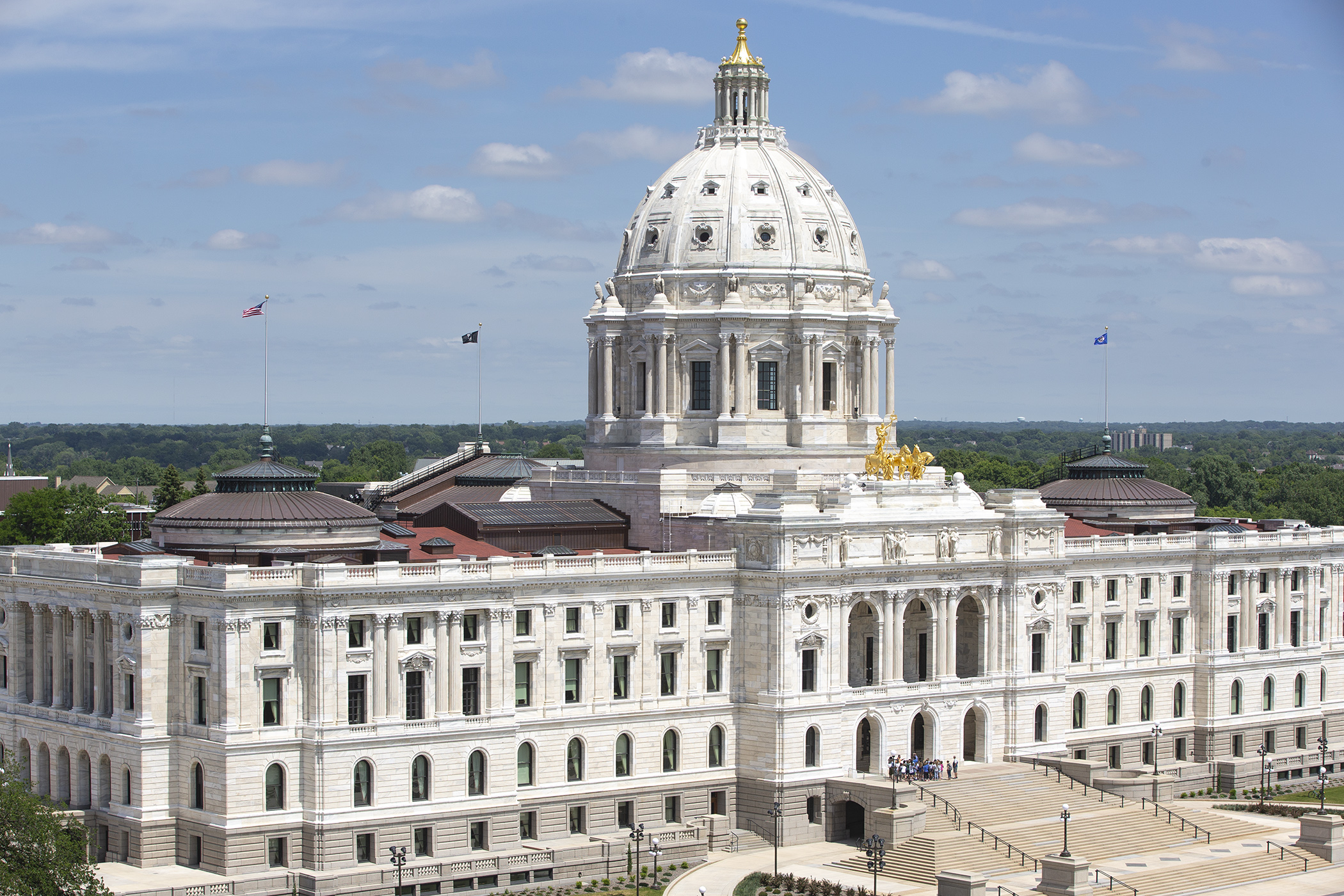A week to go and still no state budget deal between DFL, Republican leaders

Gov. Tim Walz said on Twitter that he spent Sunday afternoon putting together his son’s basketball hoop, calling it “great practice for tonight’s budget discussion.”
Those talks seemed to amount to the equivalent of an airball as no new offers were exchanged.
“We’re still waiting for a Senate counteroffer. Hopefully one will be forthcoming,” House Speaker Melissa Hortman (DFL-Brooklyn Park) said after a nearly 90-minute meeting between Walz and legislative leaders.
“We can’t negotiate until we have a willing participant on the other side, but I think they’re working on it,” she later added.
Talks are expected to resume Monday.
“We are on call 24/7,” Walz said.
Senate Majority Leader Paul Gazelka (R-Nisswa) left through a back door thereby avoiding the media waiting outside the governor’s office.
Per the constitution, the legislative session must end by May 20. Between now and then the state’s 2020-21 biennial budget expected to total somewhere in the $47 billion range needs to be crafted.
“Tonight we had a back-and-forth on tax philosophy which Republican senators wanted us to have,” said House Majority Leader Ryan Winkler (DFL-Golden Valley). “Really that has nothing to do with the fact that for this session to wrap up in time and in an orderly fashion the Minnesota Senate Republicans Caucus is going to have to come forward with some kind of offer, some kind of willingness to negotiate with us. So far, they continue to be at zero.”
Sunday’s talks were the first in five days.
“A lot can happen in a very short period of time, and I remain hopeful,” Hortman said.
Walz, too, remains optimistic, but as the minutes tick by without a “proportional offer” his frustration level increases.
“It’s going to take some meaningful movement to come forward,” he said.
Walz said increasing the gas tax and extending a 2 percent tax on hospitals and medical providers that is set to expire this year remain major sticking points. The latter generates $700 million annually for health care and other services.
“There is no one that deals with health care in a credible manner, 160 organizations from AARP to Catholic Charities, 141 hospital administrators are all telling us of the catastrophic nature of what will happen to health care across in Minnesota,” he said. “… We apparently can’t invest in our roads, bridges and transit, and we can’t invest in Minnesota’s health care.”
Related Articles
Search Session Daily
Advanced Search OptionsPriority Dailies
Speaker Emerita Melissa Hortman, husband killed in attack
By HPIS Staff House Speaker Emerita Melissa Hortman (DFL-Brooklyn Park) and her husband, Mark, were fatally shot in their home early Saturday morning.
Gov. Tim Walz announced the news dur...
House Speaker Emerita Melissa Hortman (DFL-Brooklyn Park) and her husband, Mark, were fatally shot in their home early Saturday morning.
Gov. Tim Walz announced the news dur...
Lawmakers deliver budget bills to governor's desk in one-day special session
By Mike Cook About that talk of needing all 21 hours left in a legislative day to complete a special session?
House members were more than up to the challenge Monday. Beginning at 10 a.m...
About that talk of needing all 21 hours left in a legislative day to complete a special session?
House members were more than up to the challenge Monday. Beginning at 10 a.m...